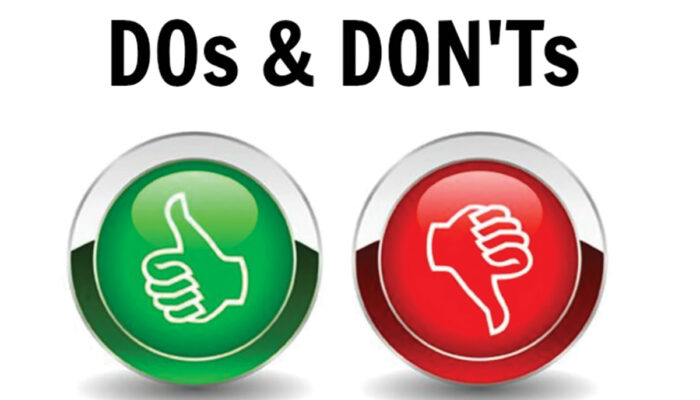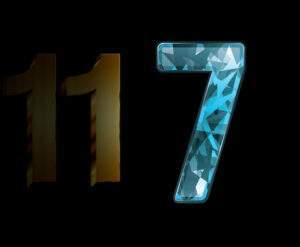Table of Contents
12 Crucial Tips to Do (and Avoid) Before Filing Bankruptcy
Los Angeles Bankruptcy lawyer explains what to do and don’t before seeking a fresh start
If you’re thinking about filing bankruptcy, what you do you beforehand has more of a bearing on the success of your case than how well the papers are completed. As a longtime Los Angeles bankruptcy attorney, I must make the best of the circumstances that are presented to me. Sometimes these situations are, shall we say, less than ideal.
What follows, in no particular order, are just some of the things I wish the people I meet with had done, or avoided doing, before we met for the consultation.
Do disclose all your income, asset, and debts
Just before we meet, in the brief questionnaire I send you, disclose to me all the various income streams you have, all the things you own, and all the people and companies you owe. All means all. Tell me about that small online business. Share me with me that 1967 classic car in showroom condition. Inform me about that embarrassing gambling debt. This way, I can give you the best advice. This prevents before us both being surprised when the vast investigative power of the government finds it and brings it to our attention at your 341(a) Meeting of Creditors. Then it’s too late (ask Boris Becker). Tell me now so I can help you strategize and navigate, honestly and ethically.

Don’t repay loans to your family
Look, we all get it. You don’t want to hurt your loved ones, and bankruptcy will wipe out that debt to your Aunt Gertrude. But taking care of family and not repaying your other debts sure seems a lot like playing favorites. Which it is. And the Bankruptcy Code has a fancy word for that: “insider.” When you repay the debt owed to a relative in the months before you file bankruptcy, it creates a situation where the Chapter 7 trustee can go after the money and spread it out more fairly.
File all your tax returns
If you’re going to benefit from bankruptcy, you need to show you’ve been satisfying your obligations to the federal government, including reporting your income. It’s understandable that you’ve been falling behind on filing your tax returns each year. Maybe you’re a year behind. Maybe you’re four. It’s easy to get into avoidance, and then you feel guilty, because you know if you submit your 1040s it’ll just say you have even more debt you can’t pay. But file them. All the returns. If you owe, you don’t need to send a check in with the return. But let’s find out what you owe. And this also prevents the very bad situation of the IRS filing a return for you (called a substitute for return or SFR). Just do it, let’s find out what you owe, and craft a strategy.
No spending sprees
This one is simple: don’t run up your credit cards. The fact that you still have thousands of dollars left under your credit limit is irrelevant. Just say no. Avoid large purchases. Stop luxury spending. No cash advances. You don’t get a spending spree. In fact, using your credit cards prior to filing bankruptcy is evidence of fraud, particularly if the credit card files a lawsuit in the bankruptcy. Fraud doesn’t go away with the Chapter 7 bankruptcy discharge; it remains your debt after the case is closed. So, don’t use your credit cards before you file bankruptcy.
Read my Ultimate Chapter 7 Bankruptcy Guide.
Don’t give away, sell, or transfer anything to anyone
Fraudulent transfer sounds pretty scary — and it is — and it doesn’t even require fraud or bad intent. Because most bankruptcy cases focus on assets, making an asset go away in the months and years prior to filing bankruptcy gets a lot of scrutiny. The trustee has the power to go after the person you gave or sold the thing to and take it away and sell it for your debts. The sad irony is in many cases, the asset could’ve been protected had it stayed in your name. In short, don’t try to game the system: the system has been around for centuries, most trustees for decades, and they have the investigative power of the government behind them. Tell me about the asset, don’t move anything around before filing, and let’s see if I can use a bankruptcy exemption to protect it.
Stay away from Zelle, Venmo, and cash apps
Here in the 2020s, cash apps like Venmo and Zelle are common. They’re convenient, and make it super easy to transfer money to and from your bank accounts. That’s also the downside: all that money flowing in and out and being exchanged with your friends and relatives at the very least looks like extra income & unnecessary expenses, and at worst, like transfers. And what did we just learn about transfers in the last paragraph? That’s right, they’re bad. You don’t want to explain each and every transfer on your bank statements to your lawyer, and then, to the trustee. You’re better off using your debit card to pay for things, or even a personal check like a primitive cave-dweller.
Think twice about buying a car before you file bankruptcy
A car debt is different from the spending spree tip, in a few ways. It’s just one purchase, though it’s a big one. Also, it’s a secured debt attached to a collateral (the vehicle). And, in bankruptcy, you don’t get a free car, or house. If you want to keep the thing, you need to stay current on the payments. However, some courts or trustees may look at a brand new car payment from a contract entered into on the eve of bankruptcy with a suspicious eye. It lowers the amount you have available to repay your debt. The Supreme Court in Milavetz weighed this very issue (examining 526a4). You’re at a bankruptcy website, so you’re clearly thinking about filing. So, before getting a vehicle loan, you probably should meet with a bankruptcy attorney.
Don’t make the big chunk of money disappear
Few things can complicate a bankruptcy more than a massive sum of cash you had two years ago being completely spent. It could be that pandemic relief PPP or SBA loan. Maybe you cashed out a home refinance, or a 401k or other retirement account. Or perhaps you sold a house and put the proceeds in the bank. Or got a recovery from a car accident. The issue is that you didn’t use this money to repay debt, but instead, funded a luxurious lifestyle and now you want to wipe out debt you chose not to repay. When asked where the cash sum went, the guaranteed answer: “it’s all gone.” The Office of the United States Trustee (OUST) will be very interested where the all-gone money went, and you should be prepared to provide a line-item analysis showing how every dollar was spent, using bank statements as supporting evidence.
Documents: get your ducks in a row
In bankruptcy, you’ll be testifying under oath. However, documents can be used as evidence. So, you should have ready (or be prepared to get ready), a year’s worth of bank statements, a Zillow printout to see if your home is over the median home price, a credit report (they can be obtained for free), at least two years of tax returns, and at least six months of pay stubs for the means test. Sure, we can sit down at your consultation and rip open all your untouched credit card statements you bring to us in a crumpled paper bag in one big cathartic unsealing ceremony. But the more efficient option is to have all these documents downloaded or saved as PDF files.
Scan documents or use a free phone scanning app
Speaking of which, your bankruptcy lawyer will love you if you can scan documents in PDF format to email to them as attachments. This is not the same thing as taking a picture of each page of your tax return. This also does not mean a screenshot of your bank balance. And, for the love of all things holy, don’t use the cell phone to take a picture of the computer monitor showing the credit report. Instead, either invest in a scanner, or, more affordably, a free PDF scanning app for your Android or Apple device. With these free PDF scanning programs, you can use the camera to capture pages of a document, and then make it a PDF for your bankruptcy attorney. A little bit of effort here will make you your bankruptcy attorney’s favorite client.
Don’t bank where you owe, and avoid Wells Fargo
Don’t have a checking or savings bank account at the same bank where you have a debt. Why? Because you have already or will soon start missing credit card payments to that bank’s credit card. When that happens, they likely have the right or authorization to take your money from the bank account to pay the debt in a bank setoff. You don’t necessarily need to close the account, but just don’t keep money in there you’d be upset about if they took it.
Also, do you know what bankruptcy attorneys talk about when we socialize? Our agreed-upon and utter dislike for Wells Fargo Bank. Why do some of us bankruptcy lawyers hate Wells Fargo with the fire of a thousand suns? Because they’re one of the very few banks that will freeze our clients’ money, even if there’s no WF credit card with them. They don’t take it, only freeze it. But that distinction is unimportant when you need to pay rent or buy food and you can’t get at your own money because Wells Fargo has has a policy which amounts to punishing you for filing bankruptcy. Wells Fargo and bankruptcy don’t mix.
Do meet with an experienced bankruptcy attorney
Get a consultation from a skilled bankruptcy lawyer. Most will charge a reduced rate to meet with you, and it’s worth every penny given the hazards you face if you don’t. It’s true you can file your own bankruptcy, and do not need to retain counsel. However, given all the risks and dangers you face, the time spent completing a bankruptcy attorney’s intake questionnaire and then answering their questions while they advise you is worth 1,000 times what you give. They’ll tell you if a Chapter 13 bankruptcy is a better option, what you could lose in a 7, or if waiting is best. You’re not under any obligation to hire that lawyer, but when you feel the relief and peace of mind, I’m pretty confident you just might want to. If you’re in the greater Los Angeles area, give me a call or send me a message; I’ll be happy to help.





